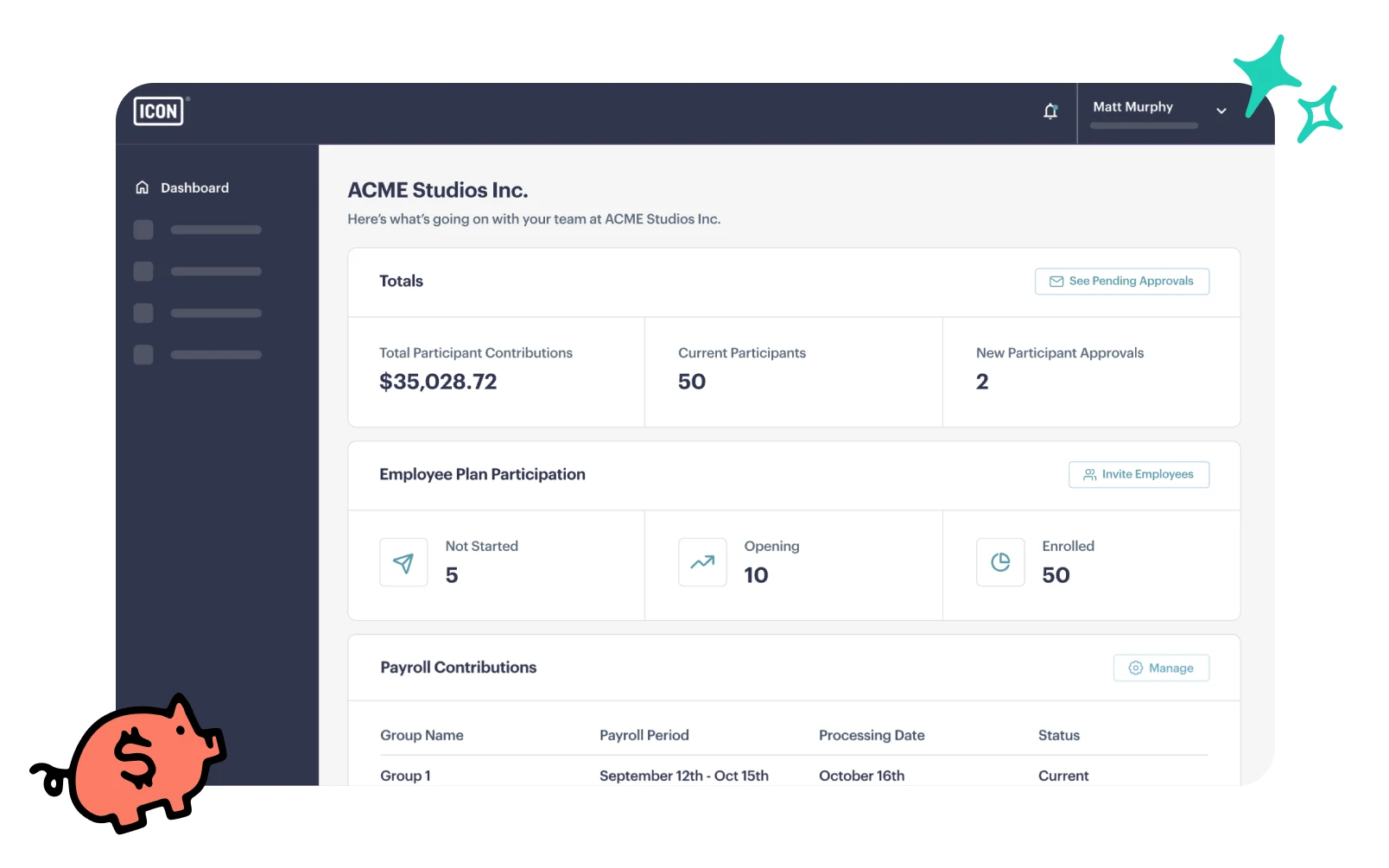Cannabis Retirement Plans: Your Questions Answered


There are more than 440,000 full-time cannabis jobs as of Vangst’s 2024 Jobs Report. With that many new cannabis workers, an important question comes to mind: “Can cannabis workers invest in a 401(k)?”
These workers are looking for the same financial security and retirement benefits offered in traditional industries — and for good reason. A 401(k) is one of the most popular tax-advantaged accounts that workers use to invest for their retirement. However, the federal legal status of cannabis creates unique challenges when it comes to retirement planning in this industry.
Whether you're a budtender, cultivation specialist, or cannabis business owner, understanding your retirement options plays a crucial part in planning for your financial future. In this guide, we’ll be covering what cannabis business owners and workers need to know for retirement planning.
Can Cannabis Workers Invest in a 401(k)?
Yes, cannabis workers can absolutely invest in 401(k) plans. Despite cannabis remaining federally illegal under the Controlled Substances Act, both the Internal Revenue Code and the Employee Retirement Income Security Act (ERISA) provide clear authority for cannabis companies to participate in 401(k) plans.
The legal framework has always existed under federal tax law. Cannabis businesses can sponsor 401(k) plans for their employees, and cannabis workers employed by companies in other industries can participate in their employers' existing retirement plans. The key distinction is that tax law and controlled substances law operate in separate legal spheres.
Jewell Lim Esposito, Esq., Partner at Pierson Ferdinand LLP and expert in ERISA and tax law, explains the legal foundation: "While 280E restricts cannabis companies from the same deductions that non-cannabis businesses take, cannabis companies may take a cost of goods sold (COGS) adjustment through the application of Section 263A, which allows subtraction of the COGS from gross income."
This means cannabis companies can essentially "deduct" their 401(k) plan costs through COGS adjustments. As Esposito notes, "Code Section 263A and its underlying Treasury Regulation provide the express authority for a cannabis company to 'deduct' production-related expenses (through COGS) that properly include employee deferral and employer matching contributions related to a 401(k) plan."
Even the IRS has acknowledged this reality. In a March 2020 Treasury Inspector General report, suggestions were made for how the IRS could increase tax compliance and provide education for the cannabis industry, including guidance on how Section 471(c) of the Internal Revenue Code works with Section 280E to allow cost of goods sold adjustments for 401(k) contributions.
However, many traditional 401(k) providers still avoid the cannabis industry altogether. Even those that do work with cannabis companies often charge higher fees because of the administrative burden, compliance risk, and added complexity. The real challenge isn't legal authority — it's finding retirement plan providers willing to work with cannabis companies and offer compliant solutions.

What Are the Best Retirement Plan Options for Cannabis Workers?
Cannabis workers have several retirement planning options, each with distinct advantages:
Employer-Sponsored 401(k) Plans
If your cannabis employer offers a 401(k), this is typically your best first option. You can contribute up to $23,500 annually (2025 limits), with an additional $7,500 catch-up contribution if you're 50 or older. Many employers also provide contribution matching, which is essentially free money toward your retirement.
Portable Retirement Plans
These newer solutions, like those offered by companies such as Icon Savings Plan, are designed for modern workforces that change jobs frequently. Unlike traditional 401(k) plans, portable plans allow you to easily take your retirement savings from job to job without complex rollovers or lost accounts. This is an especially valuable option in the cannabis industry, where workers often move between companies as the market grows.
Individual Retirement Accounts (IRAs)
Whether your employer offers a retirement plan or not, you can contribute to an IRA. Traditional IRAs offer tax-deferred growth, while Roth IRAs provide tax-free withdrawals in retirement. For 2025, you can contribute up to $7,000 annually to an IRA, or $8,000 if you're 50 or older.
SEP-IRAs and Solo 401(k)s
Cannabis entrepreneurs and independent contractors should consider these options. SEP-IRAs allow contributions up to 25% of income or $70,000 (whichever is less), while Solo 401(k)s can accommodate even higher contribution limits for self-employed individuals.
What Is the Difference Between a 401(k) and a Roth IRA?
The primary differences between a 401(k) and a Roth IRA center on tax treatment, contribution limits, and access to funds:
- Tax Treatment: Traditional 401(k) contributions are made with pre-tax dollars, reducing your current taxable income, but you'll pay taxes on withdrawals in retirement. Roth IRA contributions are made with after-tax dollars, but qualified withdrawals in retirement are tax-free. Some employers also offer Roth 401(k) options, combining the higher contribution limits of a 401(k) with the tax-free withdrawal benefits of a Roth.
- Contribution Limits: 401(k) plans allow much higher annual contributions — $23,500 for 2025 compared to $7,000 for IRAs. This makes 401(k)s more powerful for high earners who want to save aggressively for retirement.
- Employer Matching: 401(k) plans often include employer matching contributions, while IRAs are funded entirely by the individual. This employer match can significantly boost your retirement savings.
- Required Minimum Distributions: Traditional 401(k)s and IRAs require you to start taking distributions at age 73, while Roth IRAs have no required distributions during your lifetime, making them a great option for estate planning.
- Access to Funds: Roth IRA contributions (not earnings) can be withdrawn penalty-free at any time, providing more flexibility than 401(k)s, which typically impose penalties for early withdrawals before age 59½.

Which Companies Offer Retirement Benefits to Cannabis Workers?
As the industry continues to grow, cannabis companies are starting to offer more retirement options for workers. Several types of companies now offer retirement plans to cannabis workers:
- Major Cannabis Multi-State Operators (MSOs): Large cannabis companies like Curaleaf, Green Thumb Industries, and Trulieve have begun offering comprehensive benefits packages, including 401(k) plans, to attract and retain talent in the competitive cannabis job market.
- Cannabis-Focused Benefits Providers: Specialized companies have emerged to serve the cannabis industry's unique needs. These providers understand the regulatory complexities and offer compliant retirement solutions specifically designed for cannabis businesses.
- Traditional Benefits Companies: As cannabis legalization expands, more traditional retirement plan providers are becoming willing to work with cannabis companies, especially those operating in states with established legal frameworks.
- Portable Plan Providers: Companies like Icon Savings Plan offer retirement solutions that work across industries, including cannabis. These platforms focus on portability and ease of administration, making them attractive to cannabis companies that may not have an extensive HR infrastructure.
- Tech-Forward Solutions: Modern retirement platforms that emphasize digital experiences and reduced administrative burden are increasingly serving cannabis companies, recognizing the industry's growth potential and need for competitive benefits.
What Should Cannabis Companies Look for in a Retirement Savings Solution?
When choosing a retirement plan provider, cannabis companies should prioritize several key factors:
- Compliance Expertise: Choose providers who understand both ERISA requirements and the unique challenges facing cannabis businesses. They should be comfortable working with companies that operate under state cannabis licenses while navigating federal banking restrictions.
- Administrative Simplicity: Look for solutions that minimize administrative burden. Many cannabis companies are still building their HR infrastructure and need retirement plans that don't require extensive internal administration, federal filings, or complex ongoing management.
- Cost Transparency: Avoid providers with hidden fees or complex fee structures. Cannabis companies often operate on tight margins and need clear, predictable costs for benefits administration.
- Banking Integration: Ensure the retirement plan provider can work with your existing banking relationships. Some traditional banks remain hesitant to serve cannabis companies, so retirement providers must be flexible with banking arrangements.
- Employee Experience: Choose platforms that offer modern, digital-first experiences for employees. Cannabis workers, often younger and tech-savvy, expect intuitive interfaces for managing their retirement contributions and investments.
- Portability Features: Given the dynamic nature of the cannabis industry, consider solutions that allow employees to easily take their retirement savings with them if they change jobs, without complex rollover processes.
- Scalability: Select a provider that can grow with your business. Cannabis companies often experience rapid growth, and your retirement plan should accommodate increasing employee counts and evolving benefit needs.

Final Thoughts on Retirement Plans for Cannabis Workers
As the cannabis industry continues to grow and become more established, workers don’t have to choose between a job they love and planning for the future. Today, more cannabis companies are offering retirement benefits, and there are also personal options workers can explore on their own. Whether you’re just starting out or have been in the industry for years, it’s never too early (or too late) to start thinking about retirement. With the right information and a little planning, cannabis workers can feel confident they’re building a strong and secure financial future, just like in any other profession.
That’s why KayaPush has partnered with Icon Savings Plan to help cannabis businesses offer flexible, portable retirement plans — making it easier to support and retain your team. With automated people management software covering everything from hiring to payroll, KayaPush gives dispensaries the tools they need to manage their people and invest in their future. Get started today and watch your team bloom!
Heading 1
Heading 2
Heading 3
Heading 4
Heading 5
Heading 6
Lorem ipsum dolor sit amet, consectetur adipiscing elit, sed do eiusmod tempor incididunt ut labore et dolore magna aliqua. Ut enim ad minim veniam, quis nostrud exercitation ullamco laboris nisi ut aliquip ex ea commodo consequat. Duis aute irure dolor in reprehenderit in voluptate velit esse cillum dolore eu fugiat nulla pariatur.
Block quote
Ordered list
- Item 1
- Item 2
- Item 3
Unordered list
- Item A
- Item B
- Item C
Text link
Bold text
Emphasis
Superscript
Subscript


